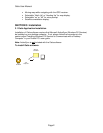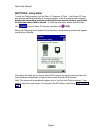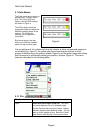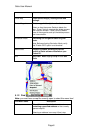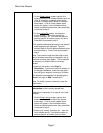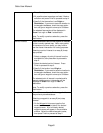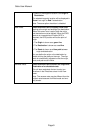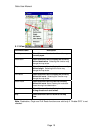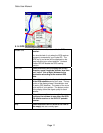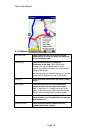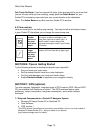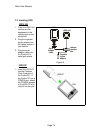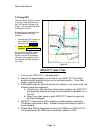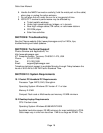Ostia User Manual
Page 16
6. Handle the MMCX connector carefully (hold the metal part not the cable)
when plug or unplug the active antenna.
7. Do not leave the unit under the sun for a long period of time.
8. iGPS-CF™ receiver’s performance may be affected by:
a. Tinted metallic windows
b. Under high raised buildings, bridges, or in tunnels
c. Near high voltage cables, CB radios, or radio base stations
d. CD ROM player
e. Solar flare activities
SECTION 8: Troubleshooting
See the Pharos website (http://www.pharosgps.com) for FAQ’s, tips,
troubleshooting and latest updates.
SECTION 9: Technical Support
Pharos Science and Applications, Inc.
http://www.pharosgps.com
411 Amapola Avenue, Torrance, CA 90501-1478, USA
Phone: 310-212-7088
Fax: 310-320-1808
Email: support@pharosgps.com
Telephone technical support is available Monday through Friday between the
hours of 9:00 AM to 5:00 PM Pacific Standard Time.
SECTION 10: System Requirements
10.1 Pocket PC/Handheld PC Requirements
Processor Type: MIPS, SH3, StrongArm
Operating System: Windows CE Version 2.11 or later
Memory: 2.5 MB
Compact Flash card or Multimedia card memory: 20 MB minimum
10.2 Desktop/Laptop Requirements
CPU: Pentium class
Operating System: Windows 95/98/ME/NT/2000
Available hard drive space: 20 MB minimum for map installation to PDA.
Ostia maps vary in size from less than 1 MB to as large as 22 MB. The



